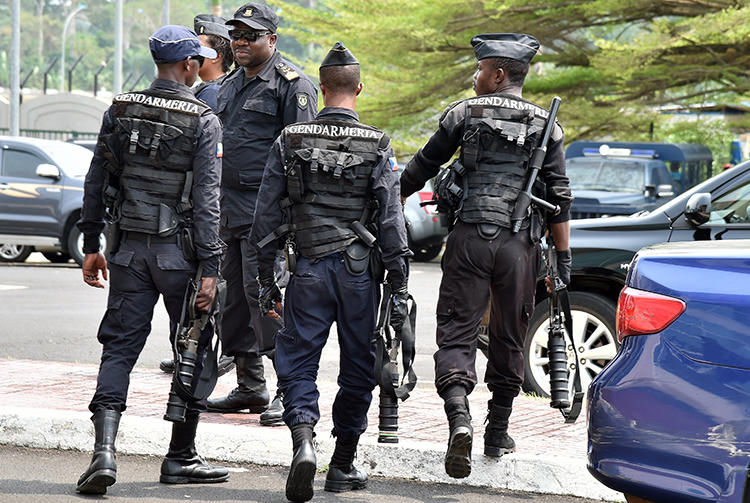On August 27, 2019, police in Bata, in central Equatorial Guinea, arrested and detained presenter Milanio Ncogo and reporter Ruben Dario Bacale, both employees of the privately owned broadcaster Asonga TV, and held them without charge until September 8, according to Ncogo, who spoke to CPJ over messaging app.
Ncogo told CPJ he believed their arrests were retaliation for an interview conducted by Bacale with Nazario Oyono Kung, an Equatoguinean judge who was recently suspended by the president of the country’s supreme court, David Nguema Obiang. Kung’s suspension followed a disagreement between the two judges over an embezzlement case, according to a report by the French government-funded Agence France-Presse.
On September 4, police told Raul Obiang, head of Asonga TV’s information service, that the journalists were detained because “they did a job that they should not do,” according to the AFP report. When contacted by phone on September 4, Equatorial Guinea’s information minister, Eugenio Nze Obiang, told CPJ he was not aware of Ncogo and Bacale’s arrests.
Asonga TV is the television branch of RTV-Asonga, the only private media outlet in Equatorial Guinea, according to a 2018 report filed to the United Nations by CPJ and other rights groups. The network is owned by Teodoro Nguema Obiang Mangue, the country’s vice president and son of President Teodoro Obiang Nguema Mbasogo, according to that report.
Tutu Alicante, the executive director of EG Justice, a U.S.-based organization that advocates for human rights in Equatorial Guinea, told CPJ over messaging app that the arrests were consistent with intimidation tactics used by the government of Equatorial Guinea against individuals viewed as critical of the authorities.
In September 2017, Ramón Nsé Esono Ebalé was arrested in Malabo, Equatorial Guinea’s capital, and detained for months in reprisal for his political cartoons and commentary about the country’s government, according to CPJ research.
